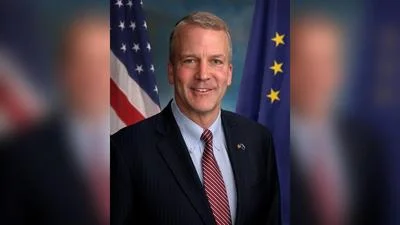U.S. Senator Lisa Murkowski | Lisa Murkowski Official website
U.S. Senator Lisa Murkowski | Lisa Murkowski Official website
U.S. Senator Lisa Murkowski (R-Alaska) joined a majority of senators this week in supporting measures aimed at restoring congressional authority over foreign trade policy and ending presidential emergency declarations that have imposed tariffs on countries such as Canada and Brazil.
Murkowski also participated in filing an amicus brief with the U.S. Supreme Court, urging it to uphold lower court decisions that found the President’s use of emergency powers to impose tariffs violated federal law. She referenced Article I of the Constitution, which assigns Congress the power to regulate commerce with foreign nations.
“For too long, Congress has taken a backseat as presidents of both parties have slowly seized more and more power,” Murkowski said. “This series of votes isn’t just about registering the Senate’s disapproval of the President’s emergency declaration on tariffs—it’s about Congress reasserting our authority as a co-equal branch of government with defined powers and responsibilities.”
The Senate approved three resolutions—S.J.Res. 81, S.J.Res. 77, and S.J.Res 88—to end trade emergencies involving Brazil, Canada, and broader global tariffs. The measures passed by votes of 52-48, 50-46, and 51-47 respectively and will now go to the House of Representatives for consideration.
Earlier this year, Murkowski spoke on the Senate floor encouraging her colleagues to reclaim congressional oversight over foreign trade issues after an earlier attempt to end a tariff-related emergency declaration was unsuccessful. Alongside a bipartisan group, she introduced the Trade Review Act of 2025. This legislation is modeled after the War Powers Resolution of 1973 and seeks to restrict presidential authority to impose tariffs without explicit approval from Congress.
In their recent amicus brief related to presidential powers under the International Emergency Economic Powers Act (IEEPA), Murkowski and other senators argued that IEEPA is intended for “unusual or extraordinary” circumstances but does not clearly grant tariff-imposing authority to the executive branch.
The legislative activity reflects ongoing debate between branches over control of U.S. trade policy—a topic addressed by several senators through legal action and proposed reforms.




 Alerts Sign-up
Alerts Sign-up